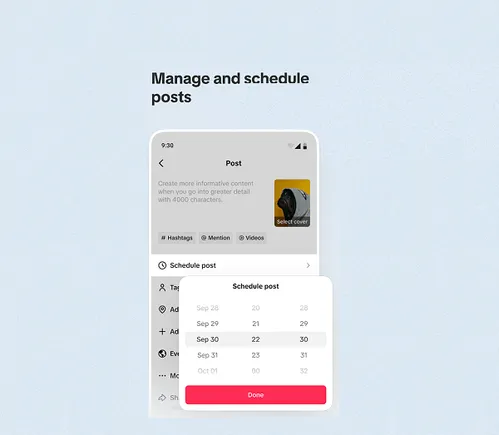Amidst the whirlwind of modern parenting, where time is scarce and stress runs high, 56% of working parents report that they don’t get to spend enough time with their children. And it gets harder for CEOs who report working an average of 62.5 hours a week and spending 3 hours a day with family.
Often, the precious moments we long to spend with our families slip through our fingers, leaving us yearning for deeper connections and feeling guilty for missing them. But what if you didn’t have to choose between feeling good about work or feeling good about your parenting?
Busy Parents Can Still Find Small Moments to Connect With Their Children
You don’t need a lot of time to find small moments to connect with your children. The first step is understanding connection. While it seems intuitive, there is connection and there’s connection. The first type is that fun part, when everyone’s happy, laughing, rubbing noses—when your kid has just won a trophy or got a great role in the play. In these moments, it’s easy to see our children as the amazing humans that they are. We need that – and it’s wonderful.
The second part, the “connection,” refers to children’s hard-wired emotional need to be “seen and heard.” This is more about understanding them, “getting” their perspective, and accepting them regardless of what’s actually happening. This is the “empathy” piece that you hear so much about. Just like hunger, when the need for true connection isn’t fulfilled, you’ll see kids act out, misbehave, or even pull away.
There’s No Need to Try and Be a Perfect Parent
First things first, you do not need to become the perfect parent and completely overhaul who you are and how you parent. Rather, be heartened that parenting is an endless continuum of opportunities to communicate and connect. Importantly, it is not about enjoying every moment or teaching every moment or even noticing every moment. Some moments are simply meant to be survived.
As a serial entrepreneur having experienced the joys and tribulations of raising four daughters born within five years, I learned to embrace small in-the-moment opportunities when I could. And the best part? These don’t require more than a few minutes.
Here’s Where to Find Small Moments to Connect With Your Children
- Repair after a rupture.
A hallmark of being a busy working parent (and really any type of parent) is that it’s inevitable—at some point we all lose it. Whether the kids aren’t ready for school when you need to leave or they miss an important homework deadline, there will be times when you lose your temper.Admitting when we make a mistake is never fun, especially when we wouldn’t have flown off the handle if our children had just behaved in the first place. But know that apologizing is about acknowledging your mistake, not letting them off the hook for theirs. It’s simply owning our part in the situation which is a profoundly meaningful pathway to connection.
It might sound like this: “I’m sorry for getting upset earlier when you spilled juice on the floor. I know accidents happen, and I shouldn’t have reacted that way. It’s not fair for me to blame you for making me late for work. Let’s get this cleaned up and jump in the car.” Showing your child that your relationship matters more than being right reminds them that they are the most important thing in the world.
When we can model accountability for our own actions, understand that our children might have hurt feelings, and show them we care, they can relax and feel safe again. Repairing gives you a moment to demonstrate raw vulnerability, honesty, and ‘human-ness.’ Again, you are not excusing their behavior or recanting whatever it was that you yelled about; rather it’s in the pivotal moment of the repair that connection thrives and growth flourishes.
- Learn to accept (not agree).
“You’re not listening.” “You just don’t get it.” Sound familiar? We haven’t all been taught listening skills, so it’s completely parent-normal to “listen” with the intent to admonish, fix, or teach rather than with the intent to understand. We may be listening but not, in fact, hearing. And kids (in fact, most of us) know the difference.The thing is, you don’t have to agree with them, it’s about accepting and validating their feelings. You drop your agenda for a minute (there’s time for that later) and embrace the opportunity to show them that you do understand, you do “get” them, and you do accept their perspective. It can be as easy as stating back to them what they have said: instead of “I am listening, but I’m sure they like you; you just need to be more assertive,” try “It can be really hurtful when it feels like friends don’t appreciate your ideas.” You’re not agreeing, you’re accepting that they feel what they are feeling: that’s connection. The bonus? Once they know you are listening, they will be more open to your ideas and suggestions.
- Put down your phone.
We don’t need research to tell us that phones are simply too hard to ignore. As Sherry Turkle points out in her book, Reclaiming Conversation, research shows that just looking at your phone during a conversation often results in a lost opportunity for true connection. Think about it, when we make a choice to look at our phone, the message we send could easily be: “this text is more important than you.”The tradeoff for the convenience of texting and the fun of social media is reduced human-to-human interactions. And amidst all that digital noise, there’s a little voice begging for your attention. Despite what Facebook and Tik Tok want us to believe, true belonging, connection, or simply feeling like we matter requires face-to-face time. Even with our kids. Especially with our kids.
So when your child is talking to you, ignore that text. Even for a minute. Look them in the eye and encourage those important and fleeting moments that are the building blocks of true connection.
- Take a break from multitasking.
Our brains are not designed to switch between tasks, so even though we wholeheartedly believe that we can text, make a shopping list, and pay attention to our children, we can’t. Well, we can try, but something is going to give. And it’s often our attention.Here’s a trick I’ve learned. Every now and then, grab your favorite timing device; an egg timer, the timer on your oven, or even your phone (as long as you aren’t staring at it.) Set your timer for one minute. Stop whatever you’re doing, turn towards your child, and devote that full minute to them.
Here’s why it works. The timer signals to your brain that it can get back to multitasking when you’re finished. That alone gives your brain permission to focus. Further, when we add in genuine curiosity about what is going on for our kids, we’re more likely to listen attentively and engage. Finally, believe it or not, once you have a proven track record of curiosity and closing your mouth, your kids will be far more likely to turn to you with problems that really matter in their tween and teen years. Connection isn’t only week long holidays; small moments count.
The beauty of these moments is that with time and practice, they will compound, leading not only to a deeper bond but also better behavior, and ultimately resilient kids who thrive.
Written by Mary Willcox Smith.
Have you read?
The World’s Top 10 Highest-Paid Wealth Management Executives.
CEO compensation: Highest paid chief executive officers in the United States.
Highly-Paid Entertainment Chief Executives (Averaged $31.66 Million).
Highest-paid health insurance CEOs.
Most Powerful Companies in Australia, 2023.
Add CEOWORLD magazine to your Google News feed.
Follow CEOWORLD magazine headlines on: Google News, LinkedIn, Twitter, and Facebook.
Thank you for supporting our journalism. Subscribe here.
For media queries, please contact: info@ceoworld.biz








































































